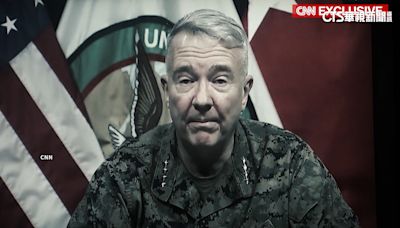阿富汗塔利班 相關
廣告支持國際人道援助,在資源匱乏的地方,為更多處於弱勢、有需要的人群提供緊急醫療照護。 超過40,000 名前線救援人員每天在世界各地,向受戰亂、疫病或災難威脅生存的人們提供援助。
搜尋結果
Etymology The word Taliban is Pashto, ط ال با ن (ṭālibān), meaning 'students', the plural of ṭālib.This is a loanword from Arabic ط ال ب (ṭālib), using the Pashto plural ending -ān ا ن . ( In Arabic ط ال ب ان (ṭālibān) means not 'students' but rather 'two students', as it is a dual form, the Arabic plural being ط ل اب (ṭullāb)—occasionally causing some ...
- Kandahar (1994–2001; 2021–present)
Names. Prelude. History. Impact. NATO's inability to stabilize Afghanistan. Foreign support for the Taliban. Reactions. Aftermath. See also. Notes. References. Sources. Further reading. External links. War in Afghanistan (2001–2021) The War in Afghanistan was an armed conflict from 2001 to 2021.
- Taliban control over Afghanistan increases compared to pre-intervention territory
Afghanistan, officially the Islamic Emirate of Afghanistan, is a landlocked country located at the crossroads of Central Asia and South Asia.Referred to as the Heart of Asia, it is bordered by Pakistan to the east and south, Iran to the west, Turkmenistan to the northwest, Uzbekistan to the north, Tajikistan to the northeast, and China to the northeast and east.
The 1992–1996 Afghan Civil War, also known as the Second Afghan Civil War, took place between 28 April 1992—the date a new interim Afghan government was supposed to replace the Republic of Afghanistan of President Mohammad Najibullah —and the Taliban 's conquest of Kabul establishing the Islamic Emirate of Afghanistan on 27 September 1996. [6]
Contents. hide. (Top) Naming. Background. Soviet deployment, 1979. Soviet invasion and palace coup. Soviet occupation, 1980–1985. Soviet exit and change of Afghan leadership, 1985–1989. Fall of Najibullah government, 1992. Aerial engagements. War crimes. Foreign involvement. Impact. Aftermath. Media and popular culture. Perception in Afghanistan.
Contents. hide. (Top) Background. American presence in Libya and Benghazi. Instability in Benghazi. Attack. Assault on the compound. Reaction in the United States. Assault on the CIA annex. Recovery of Ambassador Stevens. Evacuation. Fatalities and injuries. Responsibility. Aftermath. Libyan response. Anti-militia demonstrations.
Ahmad Shah Massoud ( Dari / Pashto: احمد شاه مسعود, Persian pronunciation: [ʔæhmæd ʃɒːh mæsʔuːd]; September 2, 1953 – September 9, 2001) was an Afghan military leader and politician. [4] He was a powerful guerrilla commander during the resistance against the Soviet occupation during the Soviet–Afghan War from 1979 to 1989.


